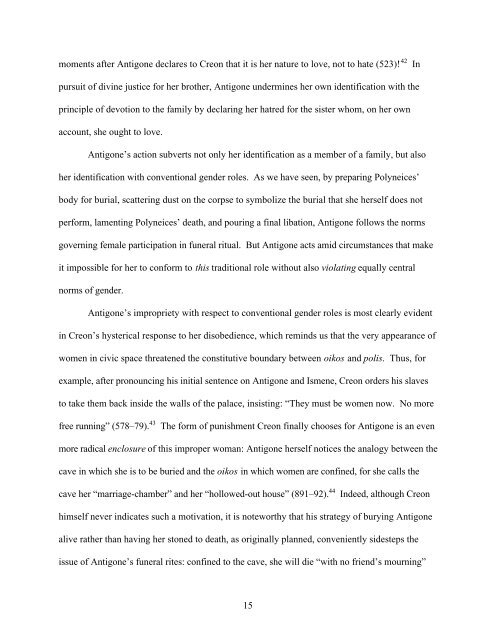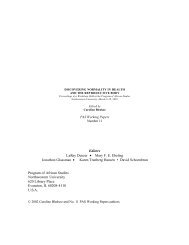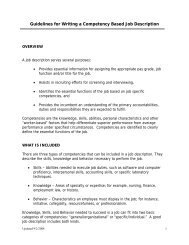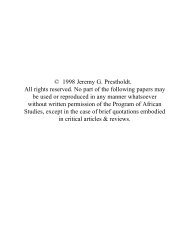TRAGIC RECOGNITION: ACTION AND IDENTITY IN ANTIGONE ...
TRAGIC RECOGNITION: ACTION AND IDENTITY IN ANTIGONE ...
TRAGIC RECOGNITION: ACTION AND IDENTITY IN ANTIGONE ...
Create successful ePaper yourself
Turn your PDF publications into a flip-book with our unique Google optimized e-Paper software.
moments after Antigone declares to Creon that it is her nature to love, not to hate (523)! 42 In<br />
pursuit of divine justice for her brother, Antigone undermines her own identification with the<br />
principle of devotion to the family by declaring her hatred for the sister whom, on her own<br />
account, she ought to love.<br />
Antigone’s action subverts not only her identification as a member of a family, but also<br />
her identification with conventional gender roles. As we have seen, by preparing Polyneices’<br />
body for burial, scattering dust on the corpse to symbolize the burial that she herself does not<br />
perform, lamenting Polyneices’ death, and pouring a final libation, Antigone follows the norms<br />
governing female participation in funeral ritual. But Antigone acts amid circumstances that make<br />
it impossible for her to conform to this traditional role without also violating equally central<br />
norms of gender.<br />
Antigone’s impropriety with respect to conventional gender roles is most clearly evident<br />
in Creon’s hysterical response to her disobedience, which reminds us that the very appearance of<br />
women in civic space threatened the constitutive boundary between oikos and polis. Thus, for<br />
example, after pronouncing his initial sentence on Antigone and Ismene, Creon orders his slaves<br />
to take them back inside the walls of the palace, insisting: “They must be women now. No more<br />
free running” (578–79). 43 The form of punishment Creon finally chooses for Antigone is an even<br />
more radical enclosure of this improper woman: Antigone herself notices the analogy between the<br />
cave in which she is to be buried and the oikos in which women are confined, for she calls the<br />
cave her “marriage-chamber” and her “hollowed-out house” (891–92). 44 Indeed, although Creon<br />
himself never indicates such a motivation, it is noteworthy that his strategy of burying Antigone<br />
alive rather than having her stoned to death, as originally planned, conveniently sidesteps the<br />
issue of Antigone’s funeral rites: confined to the cave, she will die “with no friend’s mourning”<br />
15














